Sweet success
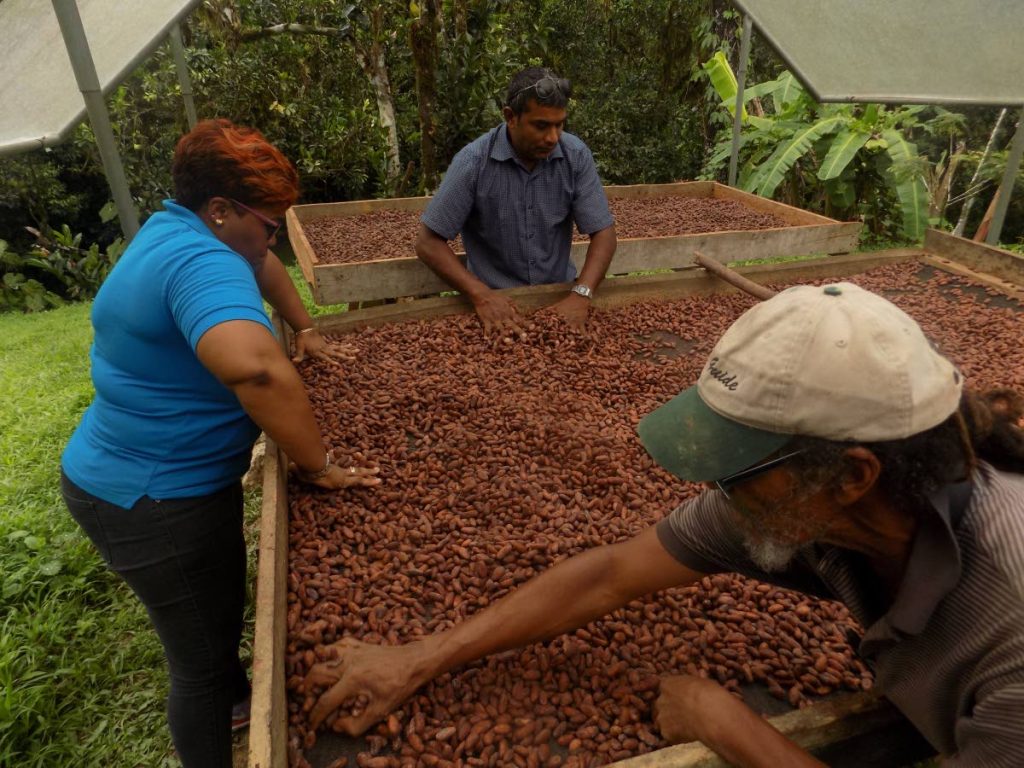
While the aroma of chocolate fills most people with thoughts of tasty, sweet goodness, socially conscious consumers have faced ethical dilemmas in recent years, from the health risks of preservatives and chemicals to allegations of certain foreign companies using child or slave labour to harvest cocoa pods.
Amidst these concerns, one local company wants to assure customers that their product is made from natural ingredients and processes and the purchase of each bar helps support small farmers.
Melissa Hernandez is the manager of the Brasso Seco Chocolate Company, a small but growing brand in TT, which has made its way into major supermarkets and retailers
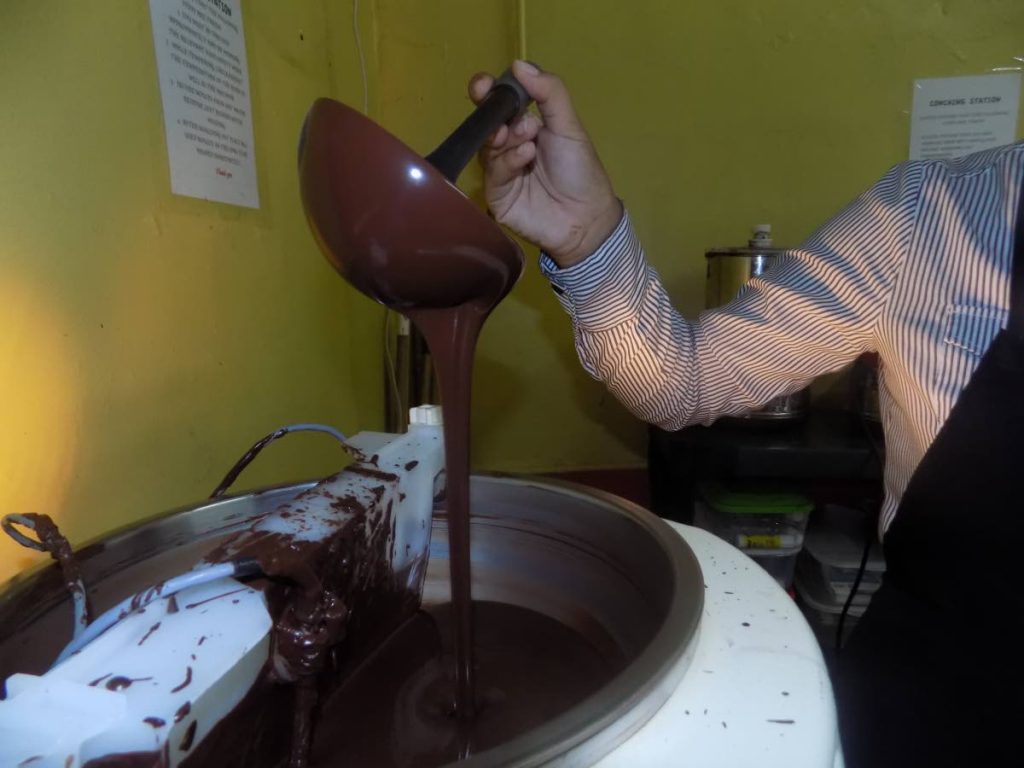
Business Day visited the Brasso Seco Community Centre last Thursday to speak with the community team that is in charge of the production of the chocolates, as well as a director from the Alliance of Rural Communities, Kelly Fitzjames, who helps with marketing and distribution of these community-made products.
Nestled in the Northern Range, Brasso Seco lies just over 27 kilometres to the north of Arima, more than an hour’s drive through winding rural roads. The journey itself is part of the experience as it gives outsiders a glimpse of the community that produces the cocoa that makes the chocolate they eat.
With only 300 inhabitants, Brasso Seco is a small community which has prided itself on being one of the last frontiers of rural life in TT, offering both local and foreign visitors a unique cultural and culinary experience.
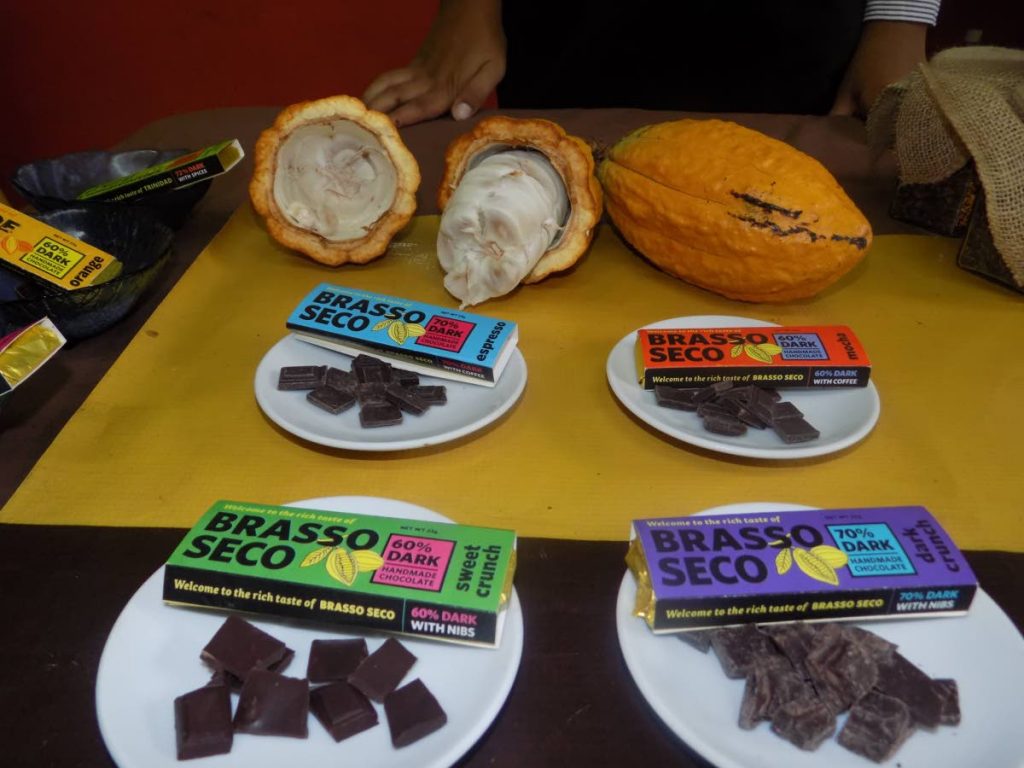
“We have hosted school trips, church groups, even companies that want to have team-building exercises come here. We give them the opportunity to experience making and eating the chocolate themselves,” Hernandez said.
This new wave of chocolatiers has sparked what Fitzjames describes as the “chocolate revolution” – a phenomenon that began in 2013 when couple Gillian Goddard and Lasse Brodnicke learned to make their own chocolate bars from YouTube tutorials.
After a successful test run, the couple spread their knowledge to rural communities throughout TT, helping them utilise resources while encouraging independence and autonomy.
Goddard is the founder and a director of the Alliance of Rural Communities (ARC) TT, a non-governmental organisation aimed at promoting self-sustainability and economic independence in rural communities.
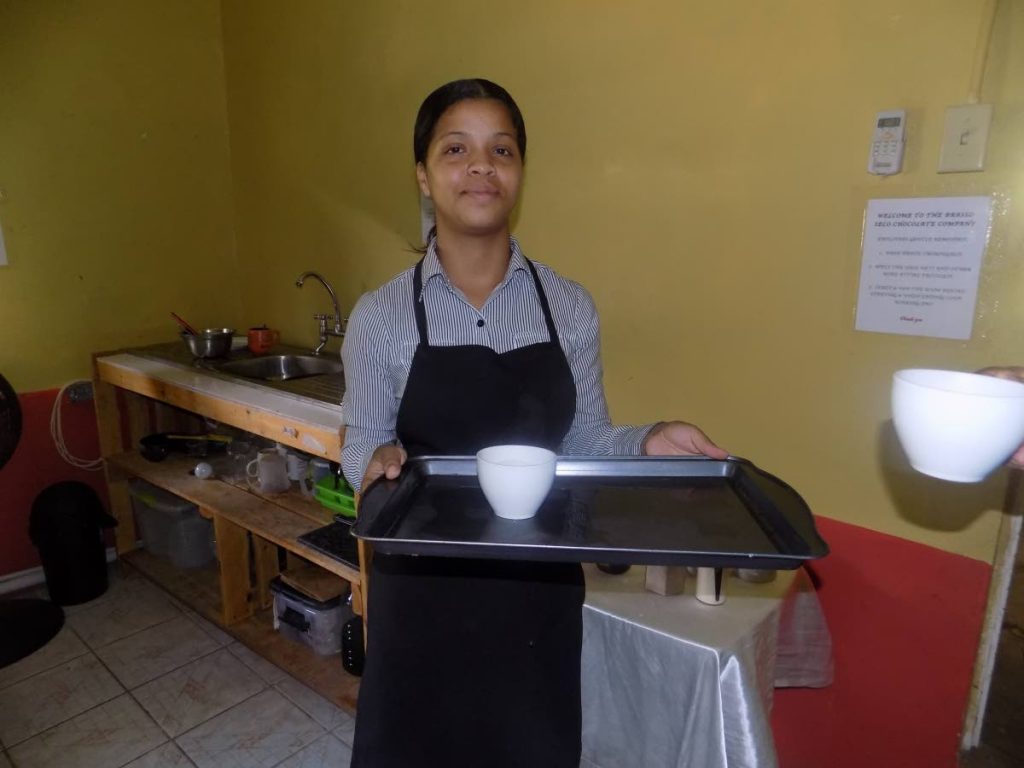
Speaking with Business Day, Goddard said the motivation for the business came from a desire to see rural communities regain their independence through their most marketable products.
“We were very limited in cash at the time when we began learning via the YouTube tutorials so we had to make a decision to use whatever cash we had to buy the equipment. I had already been doing things (related to) sustainable farming and community-building for decades so chocolate was just a new material to build on that.”
She said the socially conscious theme has driven the marketing of the product as most consumers feel better knowing their chocolates are not only grown responsibly and ethically but also contribute to local farming.
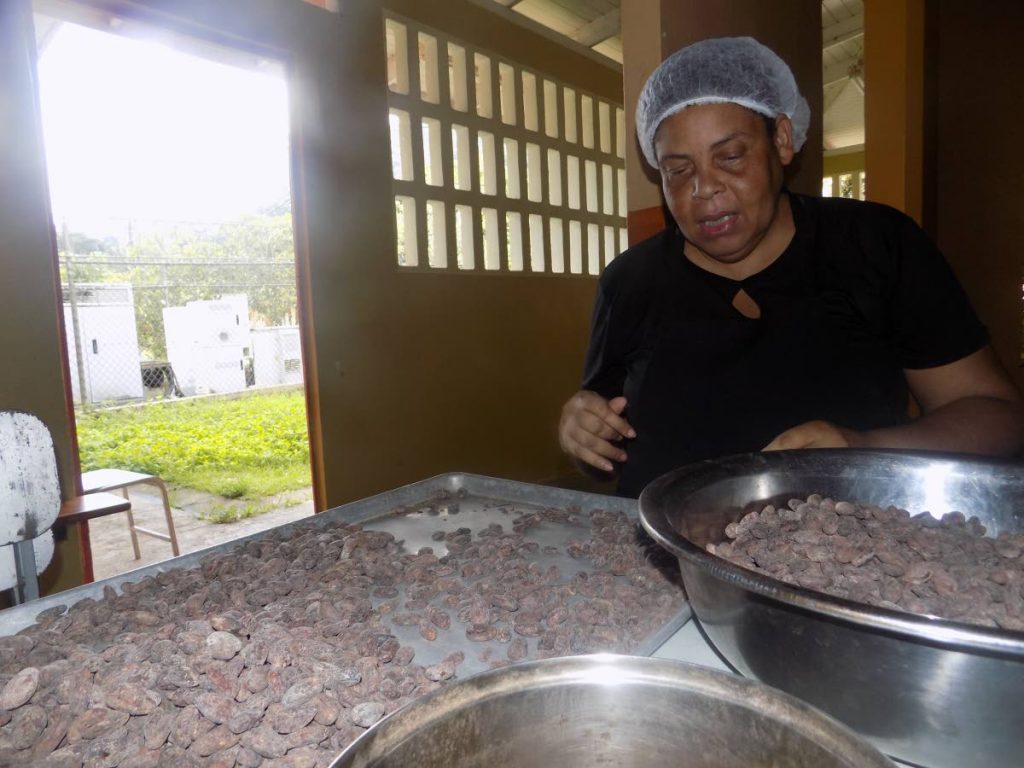
“It’s not a new concept that we’re forcing on people. Many people know what fairness, what justice is and they are very aware of how important rights are.”
Fitzjames said the Brasso Seco community alone produces up to 5,000 bars per month, crediting the productivity to an efficient system and strong work ethic among the residents.
To date ARC has supported four communities: Grande Riviere, Biche/Cushe (which together now have their own eponymous chocolate brand), Louis D’Or in Tobago, and Brasso Seco. Regionally, there are already two communities in St Lucia and one in Guyana that produce various value-added cocoa and chocolate products.
Asked if international expansion was a possibility in the near future, Fitzjames said export had unique challenges so the group would focus on developing itself regionally first.
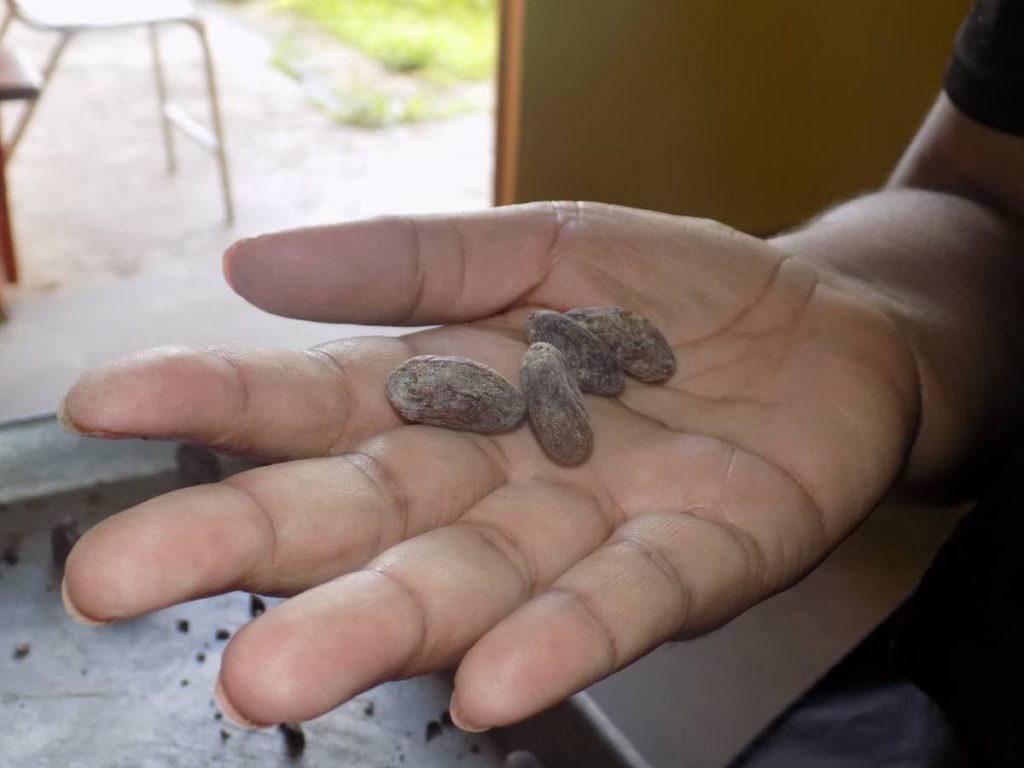
Since inception, these companies have amassed a reputation for offering quality products at a relatively low cost, ideal for business gifts, desserts for formal functions or a quick snack.
In 2016, the company’s business-savvy attracted the attention of Unicomer (Trinidad) Ltd (the parent company of furniture retailer Courts), which invested $200,000 into ten communities to assist in forming a business skills programme to help train staff in preparing chocolate and developing entrepreneurial skills.
The partnership did not end there as even after the programme, Unicomer’s managing director, Clive Fletcher, stayed in touch with the stakeholders and even helped introduce the company to its first large customer, local supermarket chain, X-Tra Foods.
Speaking with Business Day via email, Fletcher said Unicomer was committed to its corporate social responsibility by providing small businesses with the tools needed to thrive and expand. Between 2016 and 2018, the company has invested US$35,000 in training and development of local small businesses.
ARC was grateful for the assistance, but Fitzjames said the group chose networking over additional grant money because it felt that would not only go further, but it was also in line with their NGO’s goal to promote self-sufficiency without handouts.
“If you put too much grant money into a business, the company won’t understand the importance of creating its own revenue so when (Unicomer) came to us again and expressed interest in what we were doing, we said we didn’t want any more money, we want your contacts.”
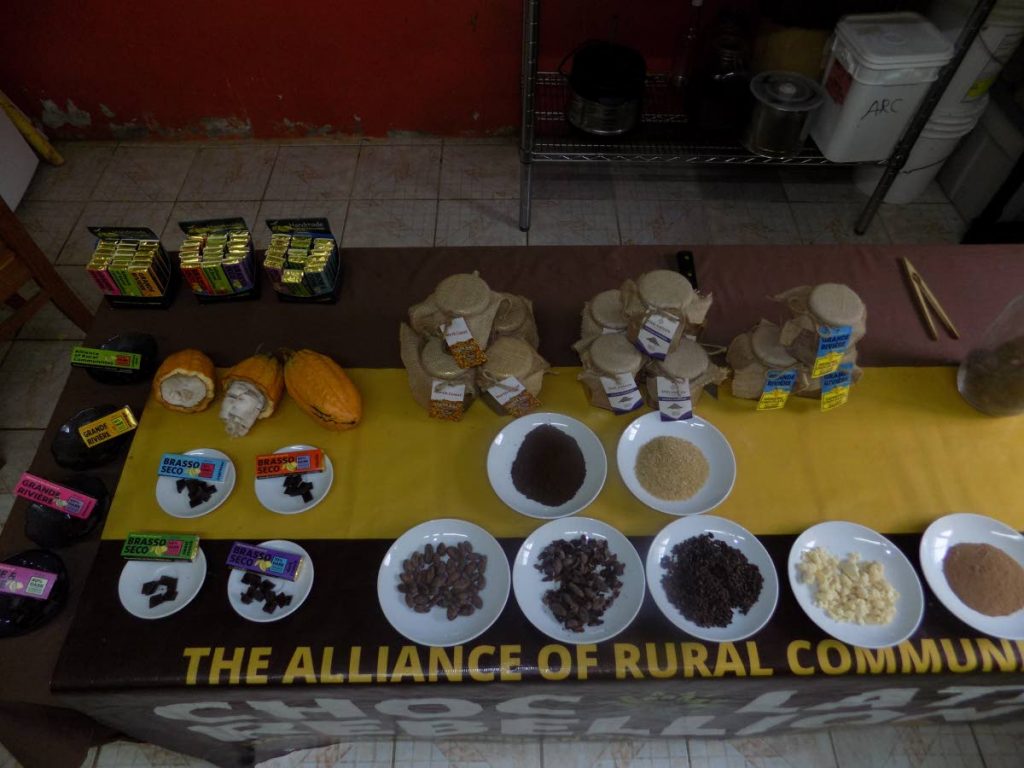
This decision led to the introduction of Brasso Seco, Grande Riviere and Biche and Cushe chocolates on shelves across supermarkets, gourmet food stores and retailers across TT.
Hernandez, who is also a Brasso Seco native, is one such resident who has benefited from the company’s growth. She says unlike other jobs, the environment is a nurturing one that fosters growth while making a difference in the community.
“It’s refreshing because I’ve worked out there (outside the community), I’ve had regular office jobs, so having a place in the community where you get encouragement and support really makes a difference. I have a son and I can bring him to work very comfortably here. It’s something that’s very beneficial to the community as opposed to a conglomerate where you don’t even know who your boss is.”
For her part, Fitzjames says while she is pleased with the growth of the company, the business aspect is just one part of ARC’s objectives, with self-sufficiency and financial independence the other parts of the company’s core principles.
During the tour, Business Day was shown some of the produce harvested by farmers. Goddard said the purpose of ARC was not merely to make chocolate but to engage farmers and encourage entrepreneurship through other crops, as reflected in their sustainable farming model, which seeks to utilise more than one crop in building and developing communities.
Despite challenges of heavy rainfall, flooding and occasional power outages, Fitzjames says that there is an abundance of resources available for ARC.
Goddard said the message of the community’s efforts was to understand the importance of community-level teamwork and the difference hard work can make even on a limited budget.
She was confident that in time, their product would distinguish itself as a sweet treat with an even sweeter message.
“The take home message is to understand that we as a people don’t need to wait for some national leader to come and make the decisions for us or tell us what to do. We can do that on our own. We have skills but we do have to revise how to work together and farm in a sustainable way. We need to be getting together in community groups to think through the challenges we have on a local and a national level.”


Comments
"Sweet success"